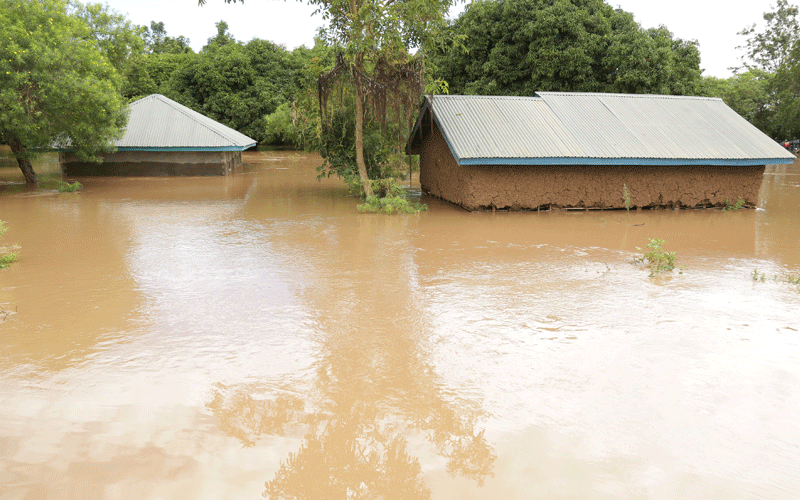Raging floods pose serious danger to food security

The heavy rains and ensuing floods has caused significant disruption in food systems. Ending poverty and ensuring zero hunger remain elusive if climate action is not significantly bolstered.
Better food systems form the cornerstone upon which the realization of sustainable development goals hinges. The floods represent a severe setback to these endeavours.
Food systems encompass the activities and actors involved in the continuum from production to consumption. Achieving better and more effective food systems necessitates hierarchical harmony among different actors and sectors, facilitating balanced interaction with the 17 sustainable development goals.
As floods wreak havoc in various parts of the world, the progress made in several fronts, including ending hunger and ensuring food security, is at risk of being undermined. Given that extreme weather events such as heavy rains are linked to climate change, attention must be squarely focused on climate action.
One might question the connection between climate and food security and systems. Food security entails ensuring that all people have access to safe, nutritious food that meets their dietary needs, enabling them to lead healthy lives.
The six dimensions of food security encompass access, availability, stability, utilization, sustainability, and agency. If any of these elements are lacking, food security cannot be assured. Transforming food systems is imperative to ensure these dimensions are met.
Floods have adversely impacted all six dimensions of food security, further disrupting food systems.
Crop Destruction: As floods devastate croplands and pasture fields, food productivity is compromised both in the present and future. This implies a shortage of food, which could lead to cascading impacts on food prices and inflation, resulting in inadequate access to food.
Displacement caused by floods adds another layer of disruption, as resources are diverted for relocation, further diminishing the purchasing power for food, hence economic inaccessibility. With a death toll reaching 76 people, the loss of human capital could have negative implications for affected households.
Infrastructure: As of now, nine major roads in Kenya have been destroyed by floods, according to official government figures. However, other critical infrastructure such as hospitals, schools, and markets have also been damaged, necessitating substantial financial resources for repair. In many instances, this will require reallocating funds from existing projects and initiatives, slowing down progress towards realizing the aspirations outlined in Vision 2030, Africa Agenda 2063, and the global sustainable development goals.
With floods likely to lead to waterborne diseases such as cholera, the inaccessibility of health facilities and services further complicates the situation. The circumstances call for proactive interventions from all sectors and actors. At the global level, the loss and damage fund must play its role in assisting developing economies to weather the current crisis.
Policy Interventions: Both national and local governments must implement innovative policies to mitigate the current crisis. A systems approach to policy making is imperative. Taking a holistic approach ensures that a single intervention yields multiple benefits. Moreover, a systemic approach to policy making, particularly in times of crisis, can serve as a catalyst for future creativity and behaviour change, as demonstrated during the Covid-19 pandemic.
Role of Young People: Critical public participation must be at the heart of interventions.
The high level of digital literacy among the majority of young people is a positive indicator of public participation, which must be extended to policy interventions. Given the diversity in Kenya, different regions will require various targeted policy interventions. Contextualized interventions are essential to mitigate the disastrous impacts of floods and climate change on food systems.
—The writer is a Climate Change and Food system communication consultant










